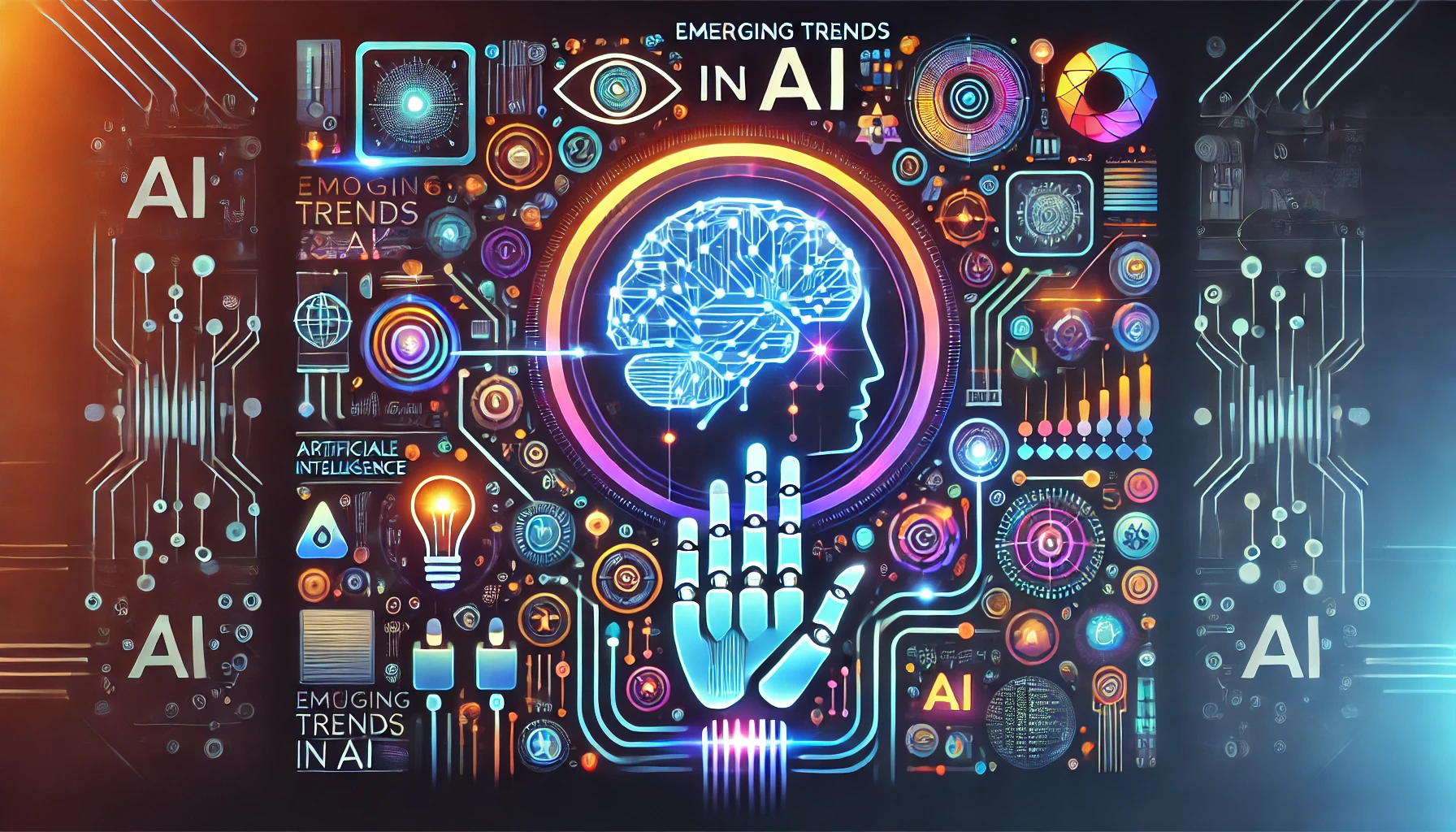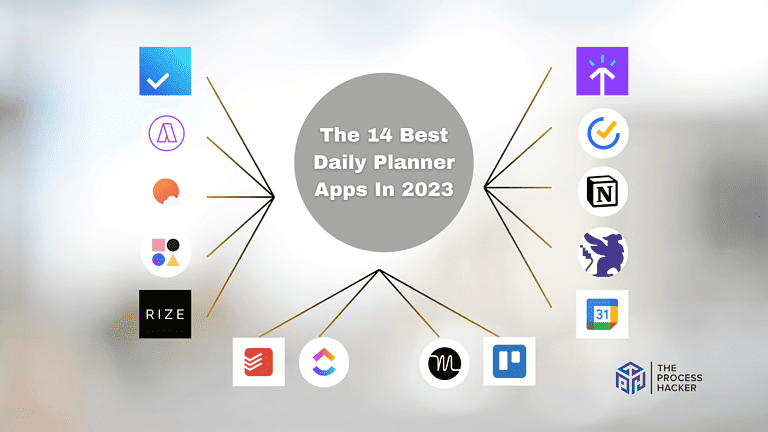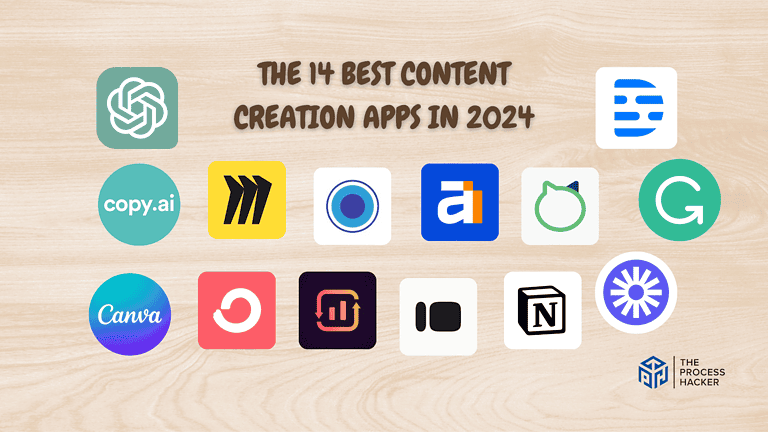Emerging Trends in AI & Their Transformative Impact on Business
As an entrepreneur, you may have heard a lot about artificial intelligence (AI) lately.
Between breathless headlines declaring we’re on the cusp of a new industrial revolution and endless conference talks droning on about machine learning this and algorithms that, it’s enough to leave any founder wondering – is all this AI hype really going to impact my business?
The answer is a resounding yes. While the AI technologies triggering disruption in giants like Amazon and Google may seem intimidatingly complex, each emerging AI trend already provides entrepreneurs with innovative new tools that can transform every aspect of their business operations.
In this post, we’ll cut through the confusing babble surrounding AI to give you a clear-eyed view of the most promising – and plausibly profitable – new applications of artificial intelligence for small businesses in the coming years.
Prepare to be surprised by how affordable and simple it is to start leveraging AI’s transformative powers today!
What is AI & Generative AI?
Artificial Intelligence (AI) is no longer a futuristic concept; it is a present reality transforming businesses across the globe. From enhancing operational efficiency to enabling innovative customer experiences, AI is being integrated into various aspects of business operations.
Companies are leveraging AI to gain competitive advantages, optimize processes, and drive growth. One of the most promising and rapidly advancing areas of AI is Generative AI. But what exactly is Generative AI?
Generative AI refers to using algorithms to generate new content, designs, or ideas based on user input. Unlike traditional AI systems, this form of AI goes beyond traditional rule-based programming and allows for more creative and versatile outputs.
The Rise Evolution of AI Models
AI has come a long way since its inception. From the early days of symbolic AI to the rise of machine learning and deep learning, the journey has been marked by significant milestones:
- 1950s-60s: The birth of AI with foundational theories and the first AI programs.
- 1980s: The emergence of expert systems.
- 1990s: Advancements in machine learning algorithms.
- 2000s: The advent of big data and the rise of neural networks.
- 2010s: Breakthroughs in deep learning and AI applications in various industries.
What are the Current Trends in AI?
The buzz around AI is real and for a good reason. It’s no longer just about automating repetitive tasks. We’re witnessing a surge in AI applications that can analyze massive datasets, personalize customer experiences, and even predict future trends. It’s about gaining a competitive edge by harnessing the power of data-driven insights.
AI and Machine Learning (ML)
Machine Learning (ML) is a subfield of Artificial Intelligence technologies that focuses on algorithms and statistical models that allow computers to learn from data without being explicitly programmed. It has become one of the fastest-growing areas in high tech with a wide range of applications, such as natural language processing or large language models, image recognition, and predictive analytics.
Further, deep learning (DL) is a subset of machine learning that uses artificial neural networks to learn from large datasets. DL has achieved impressive results in tasks such as speech recognition and computer vision, leading to its widespread adoption in various industries.
Natural Language Processing (NLP)
Significant advancements have been made in Natural Language Processing (NLP), which allows machines to understand and generate human language. NLP is the technology behind virtual assistants, chatbots, and language translation tools.
These advancements in NLP have a wide range of applications, from improving customer service through chatbot interactions to enabling more efficient text analysis for business purposes. By using NLP, companies can better understand customer behavior and sentiment, leading to more accurate decision-making processes.
Computer Vision
Another subset of ML that has seen tremendous growth is computer vision. This field involves training computers to interpret and understand visual data such as images and videos. This technology has enabled advancements in facial recognition, object detection, and even self-driving cars.
The applications of computer vision are vast and continue to expand. In the business world, it is being used for quality control in manufacturing processes, analyzing customer behavior through surveillance footage, and even providing medical diagnoses based on medical imaging. It has also revolutionized the entertainment industry with its use in special effects and animation.
AI in Automation
Automation involves using machine learning algorithms to analyze data and make decisions or take action without human intervention. This allows tasks to be completed faster and more accurately, freeing humans to focus on more complex and creative work.
AI-driven automation is revolutionizing industries by increasing efficiency and reducing costs. From robotic process automation (RPA) in administrative tasks to AI-powered robots in manufacturing and logistics, automation is streamlining operations across sectors.
AI Ethics and Governance
As AI becomes more integrated into business processes, ethical considerations and governance become crucial. Companies are developing frameworks to ensure AI systems are fair, transparent, and accountable, addressing concerns around bias, privacy, and decision-making.
Additionally, governments are implementing regulations to ensure responsible AI use and protect individuals’ rights. Thus, businesses must prioritize ethical AI practices and comply with regulations to maintain trust with customers and stakeholders. This includes regularly auditing AI systems for biases, managing shadow AI, and implementing diverse teams in their development.
AI in Customer Service
Explainable AI is transforming customer service by providing fast and efficient solutions. Automated chatbots can handle simple queries, allowing human agents to focus on more complex issues. AI-powered sentiment analysis also helps companies understand customers’ needs and preferences for targeted marketing campaigns.
Moreover, AI can assist with personalized customer recommendations based on their behavior, preferences, and purchasing history. This increases customer satisfaction and boosts business sales. In the future, AI can predict customer needs before they arise, enabling companies to proactively address issues and provide exceptional service.
AI-Generated Content Creation
With the help of algorithms and natural language processing (NLP), AI can generate personalized, relevant, and engaging content. This enables businesses to produce high-quality content faster, freeing up time for human creators to focus on more creative tasks.
AI can also analyze data and trends to determine the most effective content strategies, leading to higher engagement and conversions. Businesses can save time and resources by automating content creation while still providing valuable and compelling content to their audience.
AI in Data Analysis
Traditional data analysis methods are becoming obsolete as AI-driven tools can quickly process large volumes of data. AI algorithms can identify patterns and insights that may have gone unnoticed by human analysts, leading to more accurate and efficient decision-making. Further, AI continuously learns from the data it analyzes, making future predictions and recommendations even more accurate.
Additionally, AI in data analysis can assist with identifying trends and predicting future market changes, allowing businesses to stay ahead of their competition. This not only helps with making strategic decisions but also enables businesses to adapt quickly to changing market conditions.
Multimodal AI
A particularly exciting development is the emergence of multimodal AI. Multimodal AI combines different forms of data, such as text, images, and audio, to understand and generate more nuanced and contextually relevant content.
This opens up a world of possibilities. For instance, virtual assistants can seamlessly switch between understanding voice commands and interpreting visual cues. Additionally, marketing tools can craft personalized campaigns based on individual preferences and behaviors.
What are the Impacts of AI Systems on Specific Industries?
AI isn’t just a theoretical concept—it’s making waves across various sectors, reshaping how we work and live. Let’s delve deeper into some specific industries and explore how AI is leaving its mark:
Healthcare
AI is ushering in a new era of healthcare innovation. Machine learning algorithms analyze medical data with remarkable accuracy, leading to earlier disease detection and more precise diagnoses.
This translates to quicker interventions and improved patient outcomes, particularly for conditions like cancer and Alzheimer’s, where early detection is key. Additionally, AI-driven personalized medicine tailors treatments to individual patients, optimizing efficacy and minimizing adverse reactions.
Regarding drug discovery, AI is expediting the identification of promising drug candidates, paving the way for faster development of new therapies.
Finance
AI is revolutionizing risk assessment, fraud detection, and personalized banking services in finance. Algorithms analyze transaction patterns to detect fraud, while robo-advisors provide customized investment advice based on individual financial goals.
AI is also streamlining processes in areas such as credit underwriting, loan approvals, and insurance claims processing. Lastly, natural language processing (NLP) is being used to analyze news and market trends, helping financial institutions make more informed investment decisions.
Consulting
AI is reshaping the consulting landscape. Think of it as a supercharged analyst, capable of sifting through massive datasets to uncover insights that would take human analysts days or even weeks to find. This enables consultants to provide clients with more accurate, data-driven recommendations, leading to smarter decisions and better outcomes.
AI is also streamlining operations within consulting firms, automating routine tasks and allowing consultants to focus on higher-value activities. Thus, AI consulting services are essential in guiding other companies through the implementation and optimization of these AI solutions.
Retail
In retail, AI is transforming the shopping experience, making it more convenient, personalized, and efficient. Picture this: you walk into your favorite store, and the shelves are always stocked with the items you love. That’s the power of AI-driven inventory management, which analyzes sales data and predicts demand to ensure that products are readily available when you need them.
But it doesn’t stop there. Have you ever noticed how online retailers know exactly what you’re looking for? That’s thanks to AI-powered recommendation engines, which analyze your browsing and purchase history to suggest products that align with your unique tastes and preferences. It’s like having a personal shopper at your fingertips, making it easier than ever to discover new items you’ll love.
And while you’re enjoying a seamless shopping experience, AI is hard at work behind the scenes, optimizing the entire retail supply chain. From inventory forecasting to route optimization, AI-powered logistics solutions ensure that products are delivered to you faster and more efficiently, reducing costs and minimizing environmental impact.
Marketing and Sales
AI is changing the marketing and sales game. It’s like having a team of expert analysts working around the clock to uncover hidden insights in your customer data. These insights enable laser-focused targeting, ensuring your marketing efforts reach the right people at the right time.
AI-powered personalization takes this a step further, crafting marketing messages that speak directly to individual interests and needs, boosting engagement and driving conversions. And when it comes to pricing, AI helps you find that sweet spot, maximizing profits while keeping you competitive.
Beyond marketing, AI is revolutionizing customer interactions. Chatbots and virtual assistants are now on the front lines, providing instant support, answering questions, and guiding potential customers toward a purchase. This not only enhances the customer experience but also frees up your human sales team to focus on more complex tasks, ultimately boosting your bottom line.
Case Studies
The real-world impact of AI is perhaps best illustrated through specific examples of how businesses are leveraging this technology to achieve remarkable results. Let’s delve into a few case studies that showcase the transformative power of AI in action:
Healthcare
The Mayo Clinic, a renowned leader in medical care and research, has harnessed the power of AI to revolutionize disease detection. By employing AI algorithms to analyze vast amounts of medical data, including patient records, lab results, and imaging scans, the Mayo Clinic has significantly reduced the time it takes to diagnose complex conditions.
This early detection allows for prompt intervention and treatment, ultimately improving patient outcomes and potentially saving lives.
Finance
JPMorgan Chase, a leading global financial services firm, has embraced AI to streamline its operations and enhance efficiency. One notable application is the use of AI algorithms to analyze legal documents, which previously required countless hours of manual review by legal professionals.
By automating this process, JPMorgan Chase has not only saved significant time and resources but also improved the accuracy and consistency of legal document review. This AI-powered solution allows legal teams to focus on more complex and strategic tasks, ultimately benefiting both the firm and its clients.
Consulting
Consider a leading management consulting firm like McKinsey, which recently adopted AI-powered analytics to enhance its client offerings. By analyzing vast amounts of industry data, market trends, and competitor information, the firm’s AI-powered tools provide consultants with valuable insights and predictive models.
These insights empower consultants to develop more targeted and effective strategies for their clients, leading to improved decision-making and a competitive advantage in the marketplace. The firm has also implemented AI-driven chatbots to streamline client communication, providing quick and efficient access to information and support.
Retail
The e-commerce giant Amazon has long been at the forefront of AI adoption. The company leverages AI algorithms to analyze vast amounts of customer data, including purchase history, browsing behavior, and product reviews.
This analysis enables Amazon to fine-tune its inventory management, ensuring that products are readily available when customers want them while minimizing excess stock and associated costs. Additionally, Amazon’s AI-powered recommendation engine is a cornerstone of its success, providing personalized product suggestions to each shopper, enhancing the shopping experience, and driving sales.
Marketing
Coca-Cola, a global beverage giant, understands the importance of connecting with consumers on a personal level. To achieve this, the company has embraced AI-driven analytics to gain valuable insights into consumer preferences, behaviors, and sentiment.
By analyzing vast amounts of data from social media, online interactions, and other sources, Coca-Cola can craft highly targeted marketing campaigns that resonate with specific demographics and interest groups. This personalized approach not only strengthens brand loyalty but also boosts the effectiveness of marketing efforts, leading to increased sales and a stronger brand image.
Challenges and Considerations
While AI offers immense potential, it’s important to acknowledge that the adoption and integration of AI technologies are not without challenges. Businesses need to carefully consider various factors to ensure responsible and successful implementation. Let’s explore some of the key challenges and considerations:
Implementation Challenges
Integrating AI solutions into existing systems and workflows can be a complex endeavor. Legacy systems may not be compatible with generative AI tools, requiring significant modifications or even complete overhauls.
Additionally, the quality and availability of data are critical for effectively training data of AI models. Insufficient or biased data can lead to inaccurate results and compromised decision-making.
Moreover, the financial investment required for AI implementation can be substantial, encompassing hardware, software, and personnel training. Therefore, a comprehensive assessment of the implementation challenges is essential before embarking on the AI journey.
Workforce Implications
As AI continues to advance, it’s natural to consider the impact on the workforce. While AI has the potential to automate certain tasks, it also opens up opportunities for new roles and responsibilities.
To navigate this evolving landscape, companies must invest in upskilling and reskilling programs to equip their employees with the skills needed to thrive in an AI-powered workplace. By embracing a proactive approach to workforce development, businesses can ensure a smooth transition and create an adaptable and prepared workforce.
Data Privacy and Cyber Security
The collection and utilization of vast amounts of data are fundamental to AI’s capabilities. However, this also raises significant concerns regarding data privacy and security. Businesses must comply with data protection regulations such as GDPR and CCPA.
Implementing robust security measures, such as encryption, access controls, and regular audits, is crucial to safeguarding sensitive information from unauthorized access and potential breaches. Transparency in data collection practices and obtaining informed consent from individuals are also essential aspects of maintaining data privacy.
Future Outlook of AI
The future of AI is incredibly promising, with far-reaching implications for businesses across various industries. As AI technologies continue to advance, we can expect to witness even more sophisticated applications and transformative use cases. Let’s explore some key areas where AI is poised to make a significant impact:
Predictions
The future of AI is poised for remarkable advancements that will reshape industries and drive innovation. Experts foresee a significant leap forward with the integration of quantum computing and AI, unlocking unprecedented computational power and enabling even more complex problem-solving capabilities.
As cyber threats become more sophisticated, AI-powered cybersecurity solutions will play a crucial role in safeguarding sensitive data and protecting critical infrastructure.
Furthermore, we can anticipate the emergence of more sophisticated machine-learning models that can adapt, learn, and make decisions with even greater accuracy and autonomy. These advancements will undoubtedly propel AI to new heights, opening up a world of possibilities across various sectors.
Emerging Technologies
While the current AI landscape is impressive, the horizon holds even more groundbreaking developments. The healthcare industry is set to be transformed by AI-driven drug discovery, which has the potential to accelerate the development of new treatments and therapies.
Autonomous AI systems, capable of making decisions and taking actions without human intervention, are poised to revolutionize industries like transportation and logistics. As AI continues to mature, we can expect to see even more sophisticated collaboration tools that enable seamless interaction and cooperation between humans and AI systems, unlocking new levels of productivity and innovation.
Final Thoughts on Emerging AI Trends
It is clear that AI is not just a passing phase; it is here to stay and revolutionize how we live and work.
From predicting human behavior to solving complex challenges, AI has proven itself to be a game-changer in every aspect of our lives. As we have seen, industries of all kinds are embracing this technology and reaping its many benefits.
But let’s remember that with great power comes great responsibility. As we continue to push the boundaries of what AI can do, we must also consider its ethical implications and ensure that it serves as a tool for progress, not a means for exploitation.
So, let’s cheers to the ever-evolving world of AI and all its possibilities. As businesses strive to keep up with fast-paced developments, remember that knowledge is power—keeping yourself updated on the latest trends and advancements in AI will be vital in staying ahead of the competition.
It’s exciting to be alive, and new technologies are constantly emerging. Let’s embrace them with open arms and see where they take us in this ever-changing landscape.
The future is now, my friends, so let’s make the most of it!







